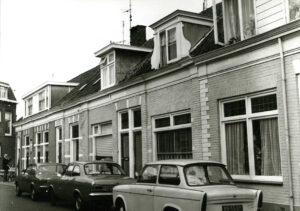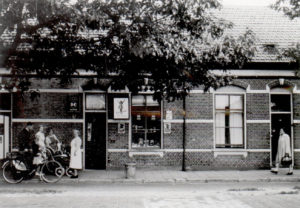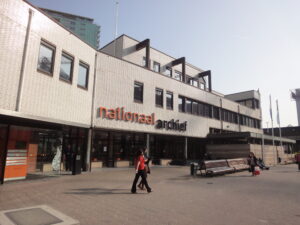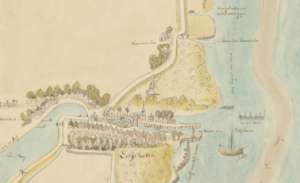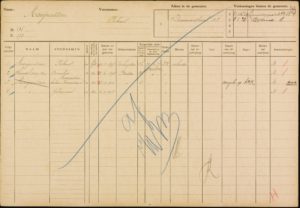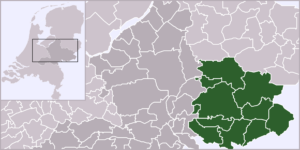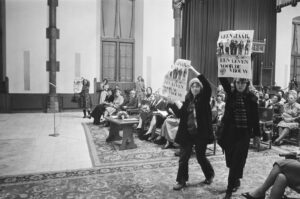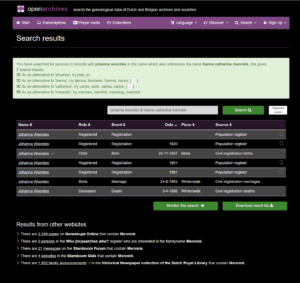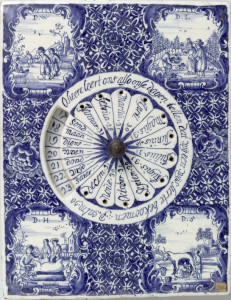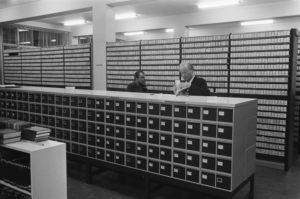Not all information that is kept in Dutch archives is available via national websites like WieWasWie or Open Archives. You can check the map of archives in the Netherlands to see where the records are kept for the place where your ancestors lived. Often, the websites of the archives will have additional information. This can include images of the towns, finding aids with scans of unindexed records, or newspapers. You may even be able to find photos of the streets where your ancestors lived. … [Read more...]
Quick Tip – Did the boundaries change?
Over the past two hundred years, Dutch municipalities have seen many boundary changes. In the past 50 years especially, many smaller municipalities have merged to form larger municipalities. Understanding these boundary changes can help you figure out if your ancestor moved, or if they continued to live in the same place but the municipality changed. For an overview of all municipalities in the Netherlands since 1811 including boundary changes, see the website Gemeentegeschiedenis. Example: … [Read more...]
Quick tip – Order records in advance
If you are visiting a Dutch archive in person, please check their website. Often, you can order records in advance. That way, the records will be waiting for you when you arrive, and you can start your research right away. Some archives provide an order button from the catalog, while others allow you to email a list of the records you want to consult. … [Read more...]
Quick tip – Use image banks at archives
Many archives have online image banks ("beeldbank") with their digitized image collections. Things you may find in there: Photos of houses and important buildings Prints, drawings, paintings of local scenes Maps Posters of local businesses, exhibitions, political propaganda Building plans of houses City ordinances I love going through these images. They give me a sense of the place. If I am lucky, I could find a photo of a house where my ancestors lived, or a drawing of … [Read more...]
Quick tip – Abbreviations in Population Registers
The website Uit de oude koektrommel has a useful page with abbreviations you may come across when using population registers. The page has four categories: Algemeen [general] Kerkelijk gezindte [Religious affiliation] Plaatsen en provincies [Place names and provinces] Landen [Countries]. The page is in Dutch, but once you know the full term you can often use a translator like Google Translate to translate the terms to a different language. … [Read more...]
Quick tip: Difference between Twente and Achterhoek
There are two regions in the east of the Netherlands that often get confused: Twente and the Achterhoek. Twente is the eastern part of the province of Overijssel. Major towns are Enschede, Hengelo, Almelo, and Oldenzaal. The Achterhoek is the eastern part of the province of Gelderland. Major towns are Winterswijk, Groenlo, Lochem, and Zutphen. … [Read more...]
Quick tip – Not always progressive
While the Netherlands is known for its progressive and tolerant policies, this was not always the case. The country has a complicated history, including periods of religious and political turmoil and persecution of minority groups; some still occuring today. A few examples: Before 1795, only members of the Dutch Reformed church could hold public office. In the 1830s, the government oppressed people who had seceded from the Dutch Reformed Church. Seceder ministers would receive … [Read more...]
Use & at Open Archives
If you use Open Archives to search for your ancestors, try searching for two names by using the &-operator. It allows you to search for two different people who appear in the same record. Examples: Woordes & Mennink: two last names of one of my ancestral couples. This gives me their marriage record, birth, marriage, and death records of their children, and the population registers of houses where they lived together. This is my favorite type of query. Woordes & Hanna … [Read more...]
Quick tip – Check the calendar
If you are dealing with a date between 1582 and 1701, please check the calendar. Different places in the Netherlands changed from the Julian to the Gregorian calendar at different times. The change made the calendar jump forward by 10 or 11 days. Sometimes, you can resolve a conflict in dates by checking the calendar. Someone born in Brabant on 5 December 1699 could be baptized in Gelderland on 1 December 1699, for example, because Gelderland was still using the Julian calendar which was 11 … [Read more...]
Quick tip – Do online research first
If you are planning a trip to the Netherlands, do not assume you can do on-site research. Many of the most popular genealogical records can now be found online, as explained in this article. Archives typically no longer allow you to consult records that have been put online. … [Read more...]
